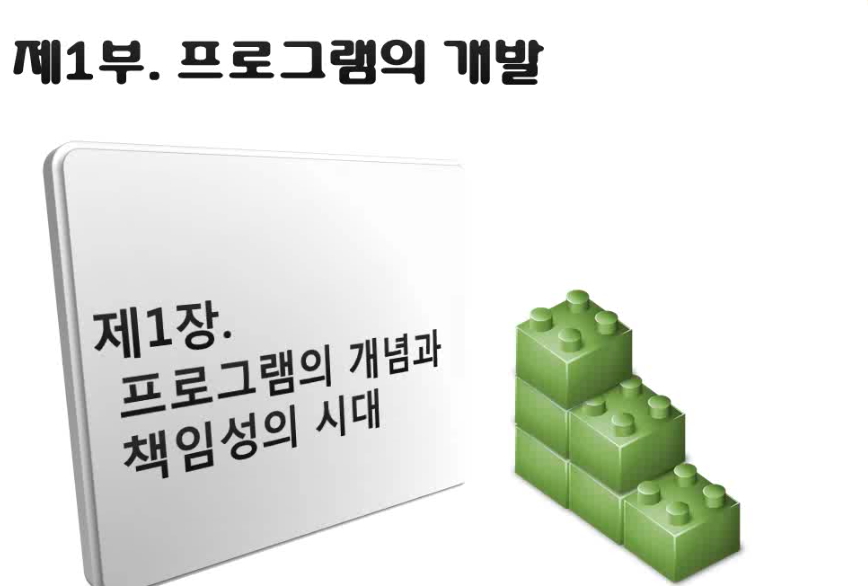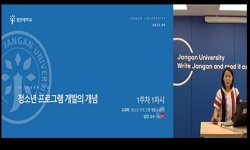Background We established the Microvascular Research Center Training Program (MRCP)to help trainee surgeons acquire and develop microsurgical skills. Medical students were recruited to undergo the MRCP to assess the effectiveness of the MRCP for train...
http://chineseinput.net/에서 pinyin(병음)방식으로 중국어를 변환할 수 있습니다.
변환된 중국어를 복사하여 사용하시면 됩니다.
- 中文 을 입력하시려면 zhongwen을 입력하시고 space를누르시면됩니다.
- 北京 을 입력하시려면 beijing을 입력하시고 space를 누르시면 됩니다.


Evaluation of the Microvascular Research Center Training Program for Assessing Microsurgical Skills in Trainee Surgeons
한글로보기https://www.riss.kr/link?id=A104556511
-
저자
Seiji Komatsu (Okayama University Hospital) ; Kiyoshi Yamada (Okayama University Hospital) ; Shuji Yamashita (Okayama Saiseikai General Hospital) ; Narushi Sugiyama (Okayama University) ; Eijiro Tokuyama (Okayama Saiseikai General Hospital) ; Kumiko Matsumoto1 (Okayama University) ; Ayumi Takara (Okayama University Hospital) ; Yoshihiro Kimata (Okayama University)
- 발행기관
- 학술지명
- 권호사항
-
발행연도
2013
-
작성언어
English
- 주제어
-
등재정보
KCI등재,SCOPUS,ESCI
-
자료형태
학술저널
- 발행기관 URL
-
수록면
214-219(6쪽)
-
KCI 피인용횟수
0
- 제공처
-
0
상세조회 -
0
다운로드
부가정보
다국어 초록 (Multilingual Abstract)
Background We established the Microvascular Research Center Training Program (MRCP)to help trainee surgeons acquire and develop microsurgical skills. Medical students were recruited to undergo the MRCP to assess the effectiveness of the MRCP for trainee surgeons.
Methods Twenty-two medical students with no prior microsurgical experience, who completed the course from 2005 to 2012, were included. The MRCP comprises 5 stages of training,each with specific passing requirements. Stages 1 and 2 involve anastomosing silicone tubes and blood vessels of chicken carcasses, respectively, within 20 minutes. Stage 3 involves anastomosing the femoral artery and vein of live rats with a 1-day patency rate of >80%. Stage 4 requires replantation of free superficial inferior epigastric artery flaps in rats with a 7-day success rate of >80%. Stage 5 involves successful completion of one case of rat replantation/transplantation. We calculated the passing rate for each stage and recorded the number of anastomoses required to pass stages 3 and 4.
Results The passing rates were 100% (22/22) for stages 1 and 2, 86.4% (19/22) for stage 3, 59.1% (13/22) for stage 4, and 55.0% (11/20) for stage 5. The number of anastomoses performed was 17.2±12.2 in stage 3 and 11.3±8.1 in stage 4.
Conclusions Majority of the medical students who undertook the MRCP acquired basic microsurgical skills. Thus, we conclude that the MRCP is an effective microsurgery training program for trainee surgeons.
참고문헌 (Reference)
1 Chan WY, "Validation of microsurgical models in microsurgery training and competence: a review" 27 : 494-499, 2007
2 Hino A, "Training in microvascular surgery using a chicken wing artery" 52 : 1495-1497, 2003
3 Selber JC, "Tracking the learning curve in microsurgical skill acquisition" 130 : 551e-558e, 2012
4 Demir Y, "Tolerance induction in composite facial allograft transplantation in the rat model" 114 : 1790-1801, 2004
5 Chan W, "Structured assessment of microsurgery skills in the clinical setting" 63 : 1329-1334, 2010
6 Sonmez E, "Penis allotransplantation model in the rat" 62 : 304-310, 2009
7 "Okayama University Department of Plastic and Reconstructive Surgery" YouTube, LLC
8 Martin JA, "Objective structured assessment of technical skill (OSATS) for surgical residents" 84 : 273-278, 1997
9 Lannon DA, "Non-vital, prosthetic, and virtual reality models of microsurgical training" 21 : 389-393, 2001
10 Klein I, "Microsurgical training course for clinicians and scientists at a German University hospital: a 10-year experience" 23 : 461-465, 2003
1 Chan WY, "Validation of microsurgical models in microsurgery training and competence: a review" 27 : 494-499, 2007
2 Hino A, "Training in microvascular surgery using a chicken wing artery" 52 : 1495-1497, 2003
3 Selber JC, "Tracking the learning curve in microsurgical skill acquisition" 130 : 551e-558e, 2012
4 Demir Y, "Tolerance induction in composite facial allograft transplantation in the rat model" 114 : 1790-1801, 2004
5 Chan W, "Structured assessment of microsurgery skills in the clinical setting" 63 : 1329-1334, 2010
6 Sonmez E, "Penis allotransplantation model in the rat" 62 : 304-310, 2009
7 "Okayama University Department of Plastic and Reconstructive Surgery" YouTube, LLC
8 Martin JA, "Objective structured assessment of technical skill (OSATS) for surgical residents" 84 : 273-278, 1997
9 Lannon DA, "Non-vital, prosthetic, and virtual reality models of microsurgical training" 21 : 389-393, 2001
10 Klein I, "Microsurgical training course for clinicians and scientists at a German University hospital: a 10-year experience" 23 : 461-465, 2003
11 Lahiri A, "Microsurgical skills training: a new concept for simulation of vessel-wall suturing" 25 : 21-24, 2005
12 Zhang F, "Microsurgical flap models in the rat" 17 : 211-221, 2001
13 Peled IJ, "Microsilicone anastomoses" 10 : 331-332, 1983
14 Furka I, "Learning microsurgical suturing and knotting techniques: comparative data" 26 : 4-7, 2006
15 Dunn RM, "Flap models in the rat: a review and reappraisal" 90 : 319-328, 1992
16 Nugent E, "Factors influencing microsurgical skill acquisition during a dedicated training course" 32 : 649-656, 2012
17 Akyurek M, "Dorsal penile vein as a new training model for microvenous anastomosis in rats" 49 : 280-284, 2002
18 Balasundaram I, "Development of a training curriculum for microsurgery" 48 : 598-606, 2010
19 Uson J, "Design of a new suture practice card for microsurgical training" 22 : 324-328, 2002
20 Martins PN, "Basic microsurgery training: comments and proposal" 22 : 79-81, 2007
21 Crosby NL, "Advanced nonanimal microsurgical exercises" 16 : 655-658, 1995
22 Govila A, "A simple model on which to practise microsurgical technique: a fresh chicken" 34 : 486-487, 1981
23 Yamashita S, "A novel model for supermicrosurgery training: the superficial inferior epigastric artery flap in rats" 24 : 537-543, 2008
24 Temple CL, "A new, validated instrument to evaluate competency in microsurgery: the University of Western Ontario Microsurgical Skills Acquisition/Assessment instrument" 127 : 215-222, 2011
동일학술지(권/호) 다른 논문
-
The Need for a Reviewer to Play Devil's Advocate
- Korean Society of Plastic and Reconstructive Surgeons
- Hwang, Kun
- 2013
- KCI등재,SCOPUS,ESCI
-
An Algorithmic Approach to Total Breast Reconstruction with Free Tissue Transfer
- Korean Society of Plastic and Reconstructive Surgeons
- Yu, Seong Cheol
- 2013
- KCI등재,SCOPUS,ESCI
-
The Effects of Polydeoxyribonucleotide on the Survival of Random Pattern Skin Flaps in Rats
- Korean Society of Plastic and Reconstructive Surgeons
- Chung, Kun Il
- 2013
- KCI등재,SCOPUS,ESCI
-
- Korean Society of Plastic and Reconstructive Surgeons
- Tan, Shane
- 2013
- KCI등재,SCOPUS,ESCI
분석정보
인용정보 인용지수 설명보기
학술지 이력
| 연월일 | 이력구분 | 이력상세 | 등재구분 |
|---|---|---|---|
| 2023 | 평가예정 | 해외DB학술지평가 신청대상 (해외등재 학술지 평가) | |
| 2020-01-01 | 평가 | 등재학술지 유지 (해외등재 학술지 평가) |  |
| 2012-01-15 | 학술지명변경 | 한글명 : 대한성형외과 학회지 -> Archives of Plastic Surgery외국어명 : Journal of The Korean Society of Plastic and Reconstructive Surgeons -> Archives of Plastic Surgery |  |
| 2011-01-01 | 평가 | 등재학술지 유지 (등재유지) |  |
| 2009-01-01 | 평가 | 등재학술지 유지 (등재유지) |  |
| 2007-01-01 | 평가 | 등재학술지 유지 (등재유지) |  |
| 2004-01-01 | 평가 | 등재학술지 선정 (등재후보2차) |  |
| 2003-01-01 | 평가 | 등재후보 1차 PASS (등재후보1차) |  |
| 2001-07-01 | 평가 | 등재후보학술지 선정 (신규평가) |  |
학술지 인용정보
| 기준연도 | WOS-KCI 통합IF(2년) | KCIF(2년) | KCIF(3년) |
|---|---|---|---|
| 2016 | 0.12 | 0.12 | 0.12 |
| KCIF(4년) | KCIF(5년) | 중심성지수(3년) | 즉시성지수 |
| 0.12 | 0.11 | 0.335 | 0.02 |




 KCI
KCI






